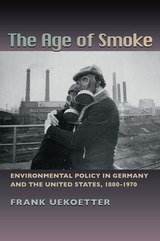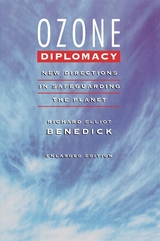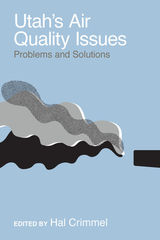
These conditions prompted civic activism in the form of “anti-smoke” campaigns to attack the unsightly physical manifestations of coal burning. This early period witnessed significant cooperation between industrialists, government, and citizens to combat the smoke problem. It was not until the 1960s, when attention shifted from dust and grime to hazardous invisible gases, that cooperation dissipated, and protests took an antagonistic turn.
The Age of Smoke presents an original, comparative history of environmental policy and protest in the United States and Germany. Dividing this history into distinct eras (1880 to World War I, interwar, post-World War II to 1970), Frank Uekoetter compares and contrasts the influence of political, class, and social structures, scientific communities, engineers, industrial lobbies, and environmental groups in each nation. He concludes with a discussion of the environmental revolution, arguing that there were indeed two environmental revolutions in both countries: one societal, where changing values gave urgency to air pollution control, the other institutional, where changes in policies tried to catch up with shifting sentiments.
Focusing on a critical period in environmental history, The Age of Smoke provides a valuable study of policy development in two modern industrial nations, and the rise of civic activism to combat air pollution. As Uekoetter's work reveals, the cooperative approaches developed in an earlier era offer valuable lessons and perhaps the best hope for future progress.

An unparalleled how-to guide to citizen-sensing practices that monitor air pollution
Modern environments are awash with pollutants churning through the air, from toxic gases and intensifying carbon to carcinogenic particles and novel viruses. The effects on our bodies and our planet are perilous. Citizens of Worlds is the first thorough study of the increasingly widespread use of digital technologies to monitor and respond to air pollution. It presents practice-based research on working with communities and making sensor toolkits to detect pollution while examining the political subjects, relations, and worlds these technologies generate.
Drawing on data from the Citizen Sense research group, which worked with communities in the United States and the United Kingdom to develop digital-sensor toolkits, Jennifer Gabrys argues that citizen-oriented technologies promise positive change but then collide with entrenched and inequitable power structures. She asks: Who or what constitutes a “citizen” in citizen sensing? How do digital sensing technologies enable or constrain environmental citizenship?
Spanning three project areas, this study describes collaborations to monitor air pollution from fracking infrastructure, to document emissions in urban environments, and to create air-quality gardens. As these projects show, how people respond to, care for, and struggle to transform environmental conditions informs the political subjects and collectives they become as they strive for more breathable worlds.


Hailed in the Foreign Service Journal as “a landmark book that should command the attention of every serious student of American diplomacy, international environmental issues, or the art of negotiation,” and cited in Nature for its “worthwhile insights on the harnessing of science and diplomacy,” the first edition of Ozone Diplomacy offered an insider’s view of the politics, economics, science, and diplomacy involved in creating the precedent-setting treaty to protect the Earth: the 1987 Montreal Protocol on Substances That Deplete the Ozone Layer.
The first edition ended with a discussion of the revisions to the protocol in 1990 and offered lessons for global diplomacy regarding the then just-maturing climate change issue. Now Richard Benedick—a principal architect and the chief U.S. negotiator of the historic treaty—expands the ozone story, bringing us to the eve of the tenth anniversary of the Montreal Protocol. He describes subsequent negotiations to deal with unexpected major scientific discoveries and important amendments adding new chemicals and accelerating the phaseout schedules. Implementing the revised treaty has forced the protocol’s signatories to confront complex economic and political problems, including North–South financial and technology transfer issues, black markets for banned CFCs, revisionism, and industry’s willingness and ability to develop new technologies and innovative substitutes. In his final chapter Benedick offers a new analysis applying the lessons of the ozone experience to ongoing climate change negotiations.
Ozone Diplomacy has frequently been cited as the definitive book on the most successful environment treaty, and is essential reading for those concerned about the future of our planet.

Utah’s Air Quality Issues: Problems and Solutions is the first book to tackle the subject. Written by scholars in a variety of fields, including chemical engineering, economics, atmospheric science, health care, law, parks and recreation and public policy, the book provides a one-stop resource on the causes, impacts, and possible solutions to the state’s air quality dilemma. This volume is a must read for anyone wanting to understand Utah’s air pollution problem and what can be done about it.

Global warming has finally made clear the true costs of using our atmosphere as a giant sponge to soak up unwanted by-products of industrial activity. As nations, businesses, and citizens seek workable yet fair solutions for reducing carbon emissions, the question of who should pay -- and how -- looms large. Yet the surprising truth is that a system for protecting the atmosphere could be devised that would yield cash benefits to us all.
In Who Owns the Sky?, visionary entrepreneur Peter Barnes redefines the debate about the costs and benefits of addressing climate change. He proposes a market-based institution called a Sky Trust that would set limits on carbon emissions and pay dividends to all of us, who collectively own the atmosphere as a commons. The Trust would be funded by requiring polluters to pay for the right to emit carbon dioxide, and managed by a non-governmental agency. Dividends would be paid annually, in much the same way that residents of Alaska today receive cash benefits from oil companies that drill in their state.
Employing the same spirit of innovation that brought millions of dollars to the nonprofit sector through his company Working Assets, Barnes sets forth a practical new approach to protecting our shared inheritance -- not only the atmosphere, but water, forests, and other life-sustaining and economically valuable common resources. He shows how we can use markets and property rights to preserve and share the vast wealth around us, allowing us not only to profit from it, but to pass it on, undiminished, to future generations.
Who Owns the Sky? is a remarkable look at the future of our economy, one in which we can retain capitalism's virtues while mitigating its vices. Peter Barnes draws on his personal experience as a successful entrepreneur to offer viable solutions to some of our most pressing environmental and social concerns.
READERS
Browse our collection.
PUBLISHERS
See BiblioVault's publisher services.
STUDENT SERVICES
Files for college accessibility offices.
UChicago Accessibility Resources
home | accessibility | search | about | contact us
BiblioVault ® 2001 - 2024
The University of Chicago Press









